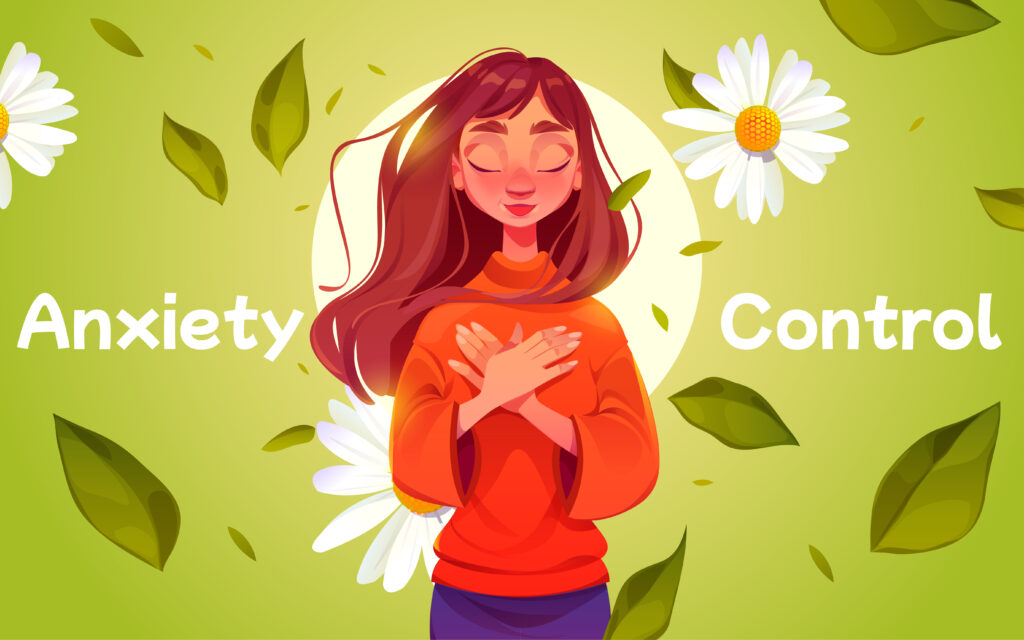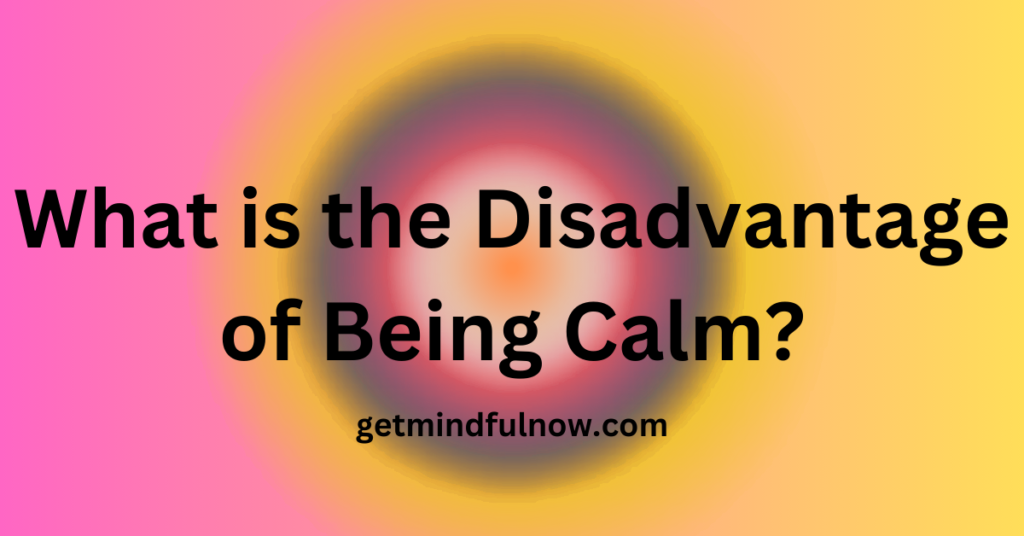We often find different reasons to be a calm person, but have you ever considered what is the disadvantage of being calm and how it might be detrimental to yourself?
In today’s fast-paced world, the concept of being calm is often championed as an ideal state of mind. However, as serene as it may seem, there’s an overlooked side to this disposition that isn’t frequently discussed.
The advantages of calmness are widely known, but delving into its disadvantages uncovers a spectrum of challenges that individuals embracing this state may encounter.
Table of Contents
Introduction: Understanding Calmness
Calmness is commonly associated with tranquility, peace, and composure. It’s characterized by a state of emotional balance and control, often perceived as a shield against the chaos of life.

However, despite its apparent virtues, being excessively calm can harbor certain downsides that impact various aspects of life.
Dysregulation, Anxiety, and Stress: The Underlying Disadvantages
Impact on Mental Health
One of the key disadvantages of being excessively calm is its connection to underlying anxiety and stress.
The person’s state of mind could have undergone dysregulation. While appearing composed externally, or internally, individuals might grapple with heightened stress levels and overwhelming anxiety.
This inner turmoil can significantly impact mental health, leading to overthinking, panic, and persistent stress-related issues.
Consequences on Decision-Making
Furthermore, a consistently calm demeanor might lead to an inclination towards indecisiveness. Typically a dysregulated person tries to avoid any harm to himself unconsciously because the body is shut down.
The perpetual state of calmness might hinder assertiveness in decision-making, potentially resulting in missed opportunities and a reluctance to pursue ambitious goals.
Lack of Assertiveness and Its Consequences
Missed Opportunities
The lack of assertiveness, a common trait among those embracing calmness, can inadvertently lead to missing out on significant opportunities.
Passiveness and a subdued ambition often accompany this state of mind, potentially limiting personal and professional growth.
Passive Behavior and Low Ambition
Individuals adopting a calm stance might find themselves overlooked and undervalued in competitive environments.
The absence of assertiveness can result in being underestimated and sidelined, impacting career advancements and personal recognition.

Being Misunderstood and Overlooked
Feeling Undervalued and Underestimated
The calm disposition might create a scenario where individuals feel misunderstood, undervalued, and underestimated. This feeling of being overlooked despite capabilities can affect self-worth and confidence, leading to dissatisfaction and frustration.
Impact on Recognition
The inability to express emotions or confront conflicts may lead to others misinterpreting intentions. Conflict avoidance and suppressed emotions can result in strained relationships, leading to emotional turmoil and unaddressed issues.
Slow Progress and Stagnation
Missed Excitement in Life
While calmness brings stability, it might also hinder the thrill of life. Slow progress, coupled with a reluctance to embrace change, can lead to a monotonous and uneventful existence, devoid of excitement and growth opportunities.
Signs that Tell If a Person is Composed Outside But Shut Down;
When pushed to resolve issues, some individuals might resort to labeling others as overly sensitive or uptight.
For instance, if a wife expresses to her husband that her privacy feels invaded by some of her in-laws, and the husband responds with, ‘You’re creating an issue out of nowhere. It wasn’t like that. You take things too seriously.’
They might seem spaced out or numb, as they’re not present at all.
When confronted, they tend to deny that there is any issue at all.
They often try to avoid difficult conversations rather than working things out, fearing losing control.
These calm individuals are in a functional freeze state, where their minds attempt to protect them by dissociating entirely.
They may leave others feeling as if they are the ones with the problem.
Conclusion
In conclusion, while being calm has its advantages, there’s a less discussed flip side. Anxiety, missed opportunities, feeling undervalued, and stagnation are among the array of disadvantages associated with an excessively calm demeanor.
True calmness is presence, not avoidance. Striking a balance between composure and assertiveness is crucial to navigate life’s challenges effectively.
FAQs
- Is being calm always advantageous?
- While calmness has benefits, excessive calmness can lead to various drawbacks.
- Can being too calm affect relationships?
- Yes, suppressing emotions might strain relationships and lead to misunderstandings.
- How does calmness relate to missed opportunities?
- Lack of assertiveness due to excessive calmness might result in missing significant opportunities.
- Does being calm lead to a stagnant life?
- Yes, excessive calmness might result in a monotonous and uneventful life.
- Can calmness contribute to mental health issues?
- Internalized stress and anxiety due to excessive calmness might affect mental well-being.
Personal Thoughts
While growing up in an extremely uncertain environment, I was a calm and content child, seemingly happy and at peace with everything. I rarely reacted to situations.
My parents appreciated this, as I seldom asked for or complained about anything. This demeanor carried into my personality as an adult. However, I was completely dysregulated.
Confronting any conflict felt overwhelming. Engaging in conversations where I had to express my desires was akin to leaping off a cliff without a safety net.
It wasn’t until my journey of self-healing commenced that I discovered deep-seated patterns within me. These patterns didn’t align with that of a genuinely calm person but rather a highly dysregulated individual.
Dissociation became my way of avoiding conflicts.
Becoming aware of these patterns and dedicating myself to change helped me break free from dysregulation. Now, I comfortably navigate challenging conversations, fostering authentic relationships without fear.
Read about How meditation has helped me overcome dysregulation
I hope this has helped you gain a deeper understanding of how extreme calmness is not healthy for us. I’ll be sharing more about this in upcoming blogs.
Feel free to share your thoughts or experiences in the comments section, and I would love to engage in a conversation with you!





